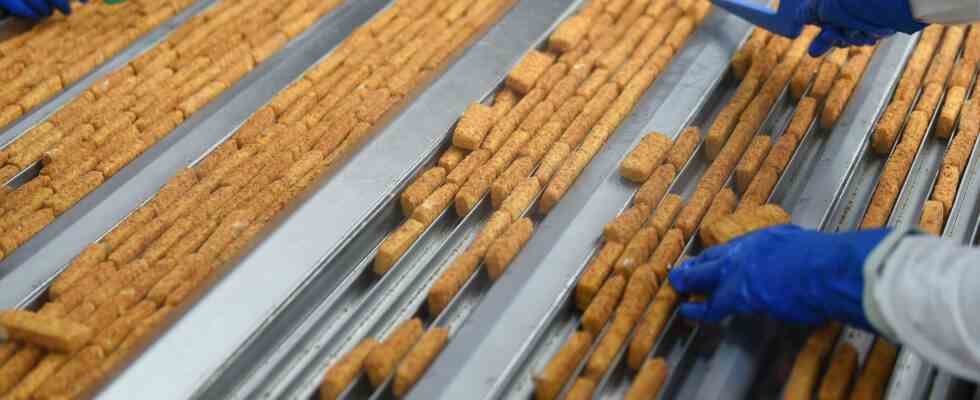Status: 12/20/2022 12:51 p.m
There are more and more signals that inflation in Germany is slowing down. For the second month in a row, producer prices, i.e. the prices for industrial products from manufacturers, have fallen – especially in the energy sector.
Producer prices fell by an average of 3.9 percent last November compared to October. After a fall of 4.2 percent from September to October, this is the second minus month-on-month. This was reported by the Federal Statistical Office in the morning.
Factory gate prices
The current decline of almost four percent is also larger than economists who were interviewed by the Reuters news agency had expected. The development of producer prices is regarded as a forerunner for the development of consumer prices in the coming months. In the statistics, the prices are listed from the factory gate, i.e. before the products are further processed or sold.
Above all, the fall in energy costs contributed to the renewed minus in producer prices in November. On average, companies had to spend almost ten percent less than in October. Fuels such as petrol became cheaper by 7.5 percent compared to the previous month, and light heating oil by as much as 16.9 percent.
Consumables and intermediate goods at a high level
However, the prices for consumer goods at the manufacturer level in November remained almost at the level of the previous month, they rose by a total of 0.2 percent compared to October. Persistently high food prices such as sugar, milk and meat products were responsible for this.
So-called “intermediate goods” such as metals and wood were only 0.7 percent cheaper in November compared to the previous month.
“The next increase in costs is imminent”
It remains to be seen to what extent and how quickly the fall in producer prices will affect consumers. For December, the experts are assuming a significant drop in the inflation rate, which was still 10.0 in Germany in November.
“The increase in costs triggered by rising energy prices and the scarcity of primary products is obviously decreasing,” says Commerzbank economist Ralph Solveen. But that doesn’t mean that consumers can count on inflation rates of two percent again. “Because with the already agreed or at least looming large wage increases, the next increase in costs is already imminent,” says Solveen.
Bundesbank expects further rate hikes
Bundesbank President Joachim Nagel is also not expecting quick success in the European Central Bank’s (ECB) fight against escalating inflation. “It will be some time before inflation gets back to where it belongs, at two percent,” Nagel said in an interview with NTV last night.
Nagel warned: “We’re going to go through a few tough months.” The ECB has already acted strongly with four rate hikes over the course of the year. According to Nagel, the rate hikes will continue for the time being.

